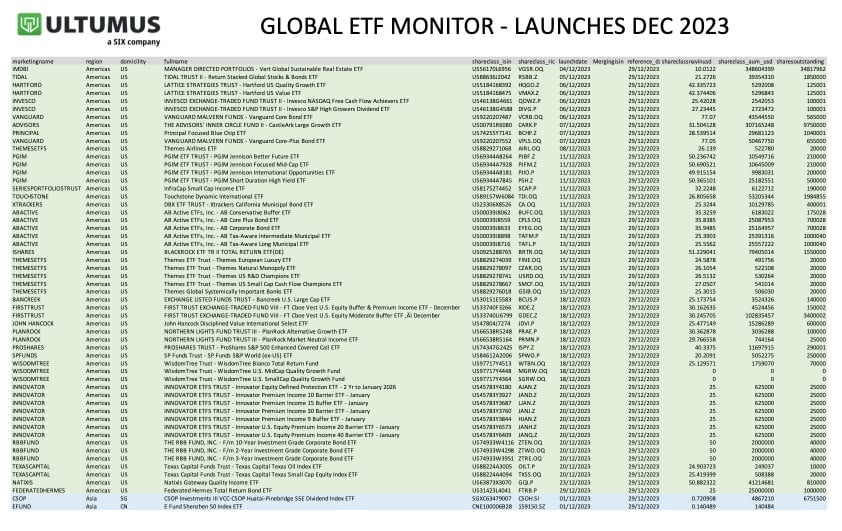USA
Pacer listing free cash flow ETFs until the cows come home
Pacer, one of the more successful emerging ETF providers in recent years, is milking investors love of free cash flow ETFs, adding more udders to its offering.
- Pacer US Cash Cows Growth ETF (BUL)
- Pacer Emerging Markets Cash Cows 100 ETF (ECOW)
BUL will look for growth companies that maintain high free cash flows. It starts with the S&P 900 Pure Growth Index, and then pasteurises the index, screening companies for their average projected free cash flows and earnings over the next two years. Companies with negative average projected free cash flows or earnings are removed while finance companies are also removed.
The remaining companies are ranked by their free cash flow yield over the trailing 12 month period. The top 50 companies by free cash flow yield are put in the index. At the time of each rebalance, companies are weighted by market cap, and weightings are capped at 5%.
ECOW starts with the FTSE Emerging Markets Index, which is then for projected free cash flows and earnings. Companies with negative average projected free cash flows or earnings are removed from the index. Finance companies with a market cap less than $2 billion and companies with low trading volumes are also removed.
The remaining companies are ranked by their free cash flow yield for the trailing twelve-month period. The top 100 companies by free cash flow yield are added to the index. Each company’s weight is capped at 2%, giving the index something close to an equal weight effect.
Biblically responsible Timothy Plan plans to volatility weight
Biblically responsible asset manager Timothy Plan is entering the ETF market listing a new risk-managed ETF. The Timothy Plan US Large Cap Core ETF (TPLC) will be advised and managed Victory Capital Management, which provides other risk-managed ETFs.
The fund starts with NASDAQ Victory US Large Cap 500 Volatility Weighted Index, a volatility weighted index made of the 500 largest US companies with positive earnings in each of the four most recent quarters. It then eliminates companies that are not biblically responsible, the prospectus says.
Biblically irresponsible companies include: “those involved in the production or wholesale distribution of alcohol, tobacco, or gambling equipment, gambling enterprises… in abortion or pornography, or promoting anti-family entertainment or alternative lifestyles.”
We presume the latter refers to gay marriage.
Biblically responsible companies are then weighted by standard deviation over the past 180 trading days. Stocks with lower volatility receive a higher weighting.
The index is rebalanced twice a year. Sector exposures are capped at 25%.




